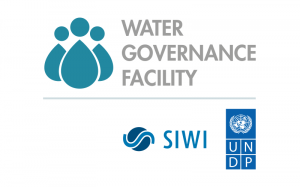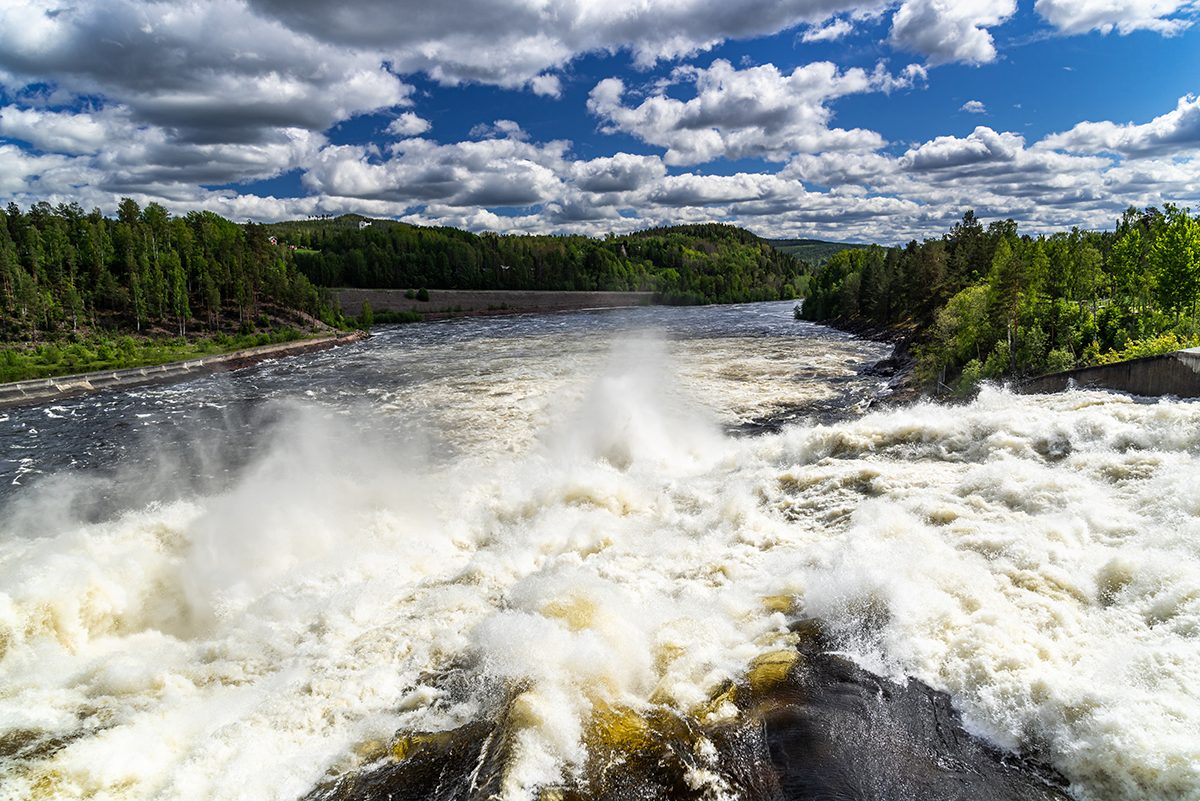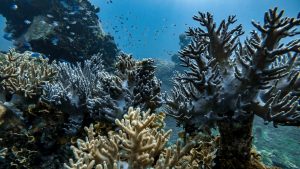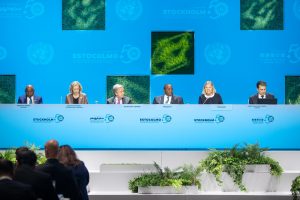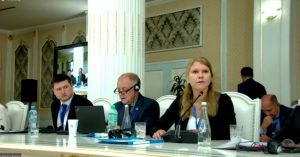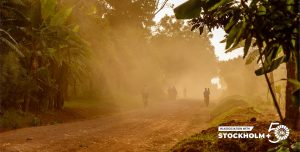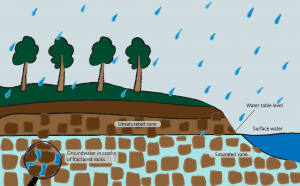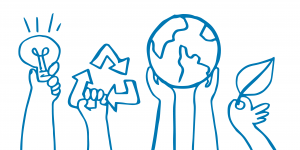Human rights and water resources for a healthy and sustainable environment: What SIWI does in the field
“A rights-based conservation is the most effective, efficient, and equitable path forward to safeguarding the planet.”
SIWI’s engagement for a healthy, sustainable environment
At SIWI, we work with different approaches and methodologies. This allows for a holistic view on watershed governance based on the interlinkages between land, freshwater, and oceans.
These perspectives all contribute to further the realization of human rights:
Integrated water resources management (IWRM)
Integrated water resources management (IWRM) attempts to integrate all aspects of water resource interventions into a framework at the river basin level. The IWRM takes aim at the system including streams, lakes, groundwater, soil, and trees. It also includes humans and animals who live in it as well as infrastructure that has been added.
In 2017, the UNDP–SIWI Water Governance Facility co-authored a Manual for taking a rights-based approach to IWRM. This brings together two fields that had previously been separate. Water has a crucial role to realize key human rights, and the HRBA framework adds value to the 3 Es of sustainable development: Economic efficiency in water use; social equity; and the environmental /ecological aspects.
An online course on an HRBA to IWRM has been offered twice together with Cap-Net. The course will be available again during 2022.
Action Platform for Source-to-Sea Management (S2S Platform)
SIWI hosts and coordinates the Action Platform for Source-to-Sea (S2S) Management, a multi-stakeholder initiative working towards a world in which land, freshwater, coastal, and marine resources are managed holistically, balancing benefits for the environment, communities, and economy. As a concept, the S2S takes a wider geographical scope than the IWRM, which focuses solely on freshwater in river basins. The S2S covers specifically insights into the complex relationships between different ecosystems – on land and in rivers, deltas, estuaries, nearshore and in oceans.
The six step-process for implementing the S2S approach has much in common with the HRBA in that it builds on stakeholder mapping (similar to the root cause analysis of the HRBA) and participation.
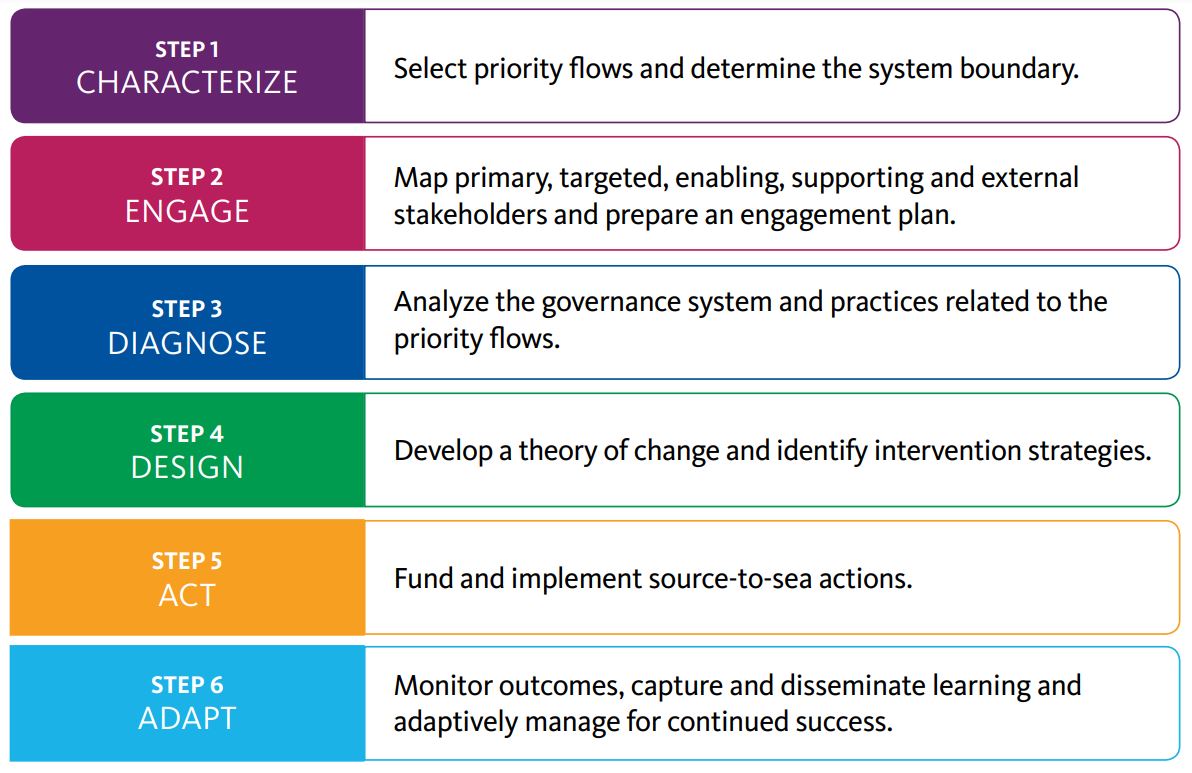 The six steps of the source to sea approach
The six steps of the source to sea approach Forest landscape restoration (FLR)
Forest landscape restoration (FLR) highlights the importance of sustainable forest management and resilient landscapes to secure water resources world-wide. The International Training Programme ‘Locally Controlled Forest Restoration’ (LoCoFoRest) builds capacity at local and institutional level to meet the growing global demand for wood-based products, while supporting local economies, water security, and biodiversity as well as climate change adaptation and mitigation. Implemented across six countries in Africa and Asia, it uses the HRBA to show the linkages between FLR measures and established human rights to health, drinking water, food, work, an adequate standard of living – and to a healthy environment.
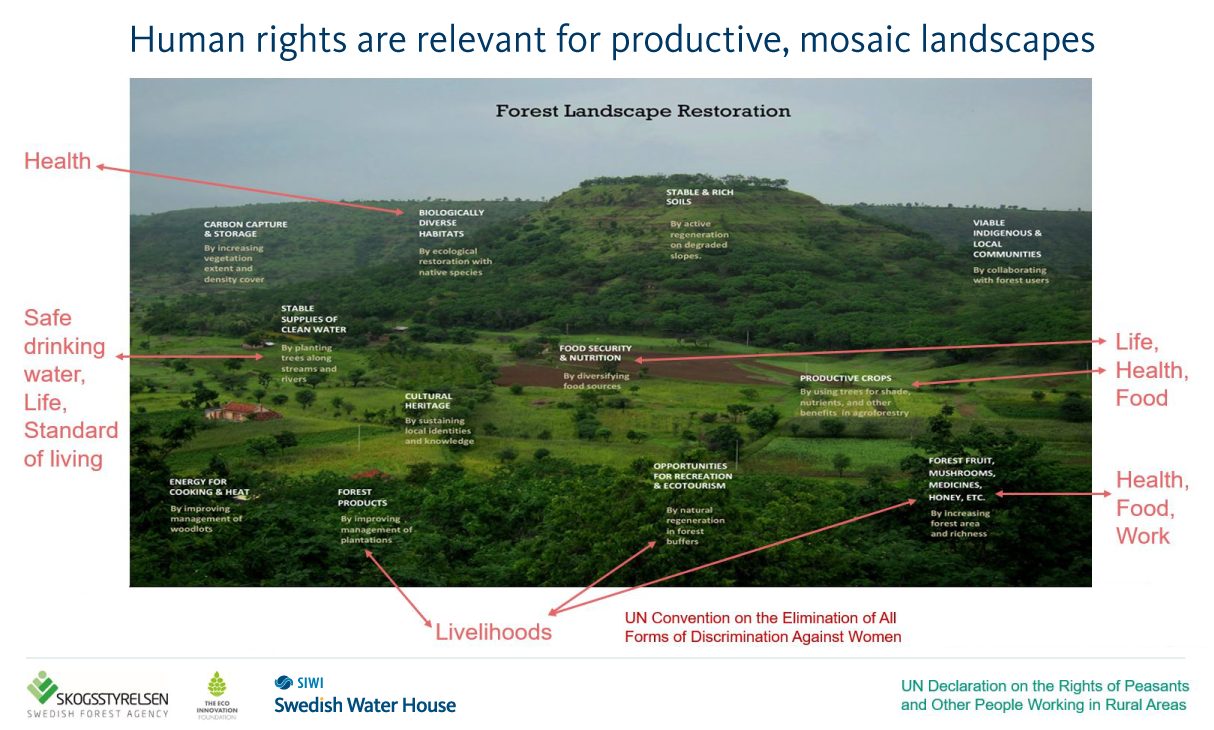
The human rights also underpin the LoCoFoRest programme’s use of rules (laws, standards, regulations, and social norms) according to the market systems approach.
Learn more about the right to a healthy environment
Join us in the afternoon of the 18 January 2022 for a webinar on water resources and the right to a healthy, sustainable environment. This webinar is organized by SIWI’s Swedish Water House. More information on how to sign up will be shared soon.
Visit the Swedish Water House pageThis blogpost is part of a series that looks at human rights, water resources, and governance for a healthy and sustainable environment.
This is the final post. Read the two other blog posts of the series:
This blogpost is part of
